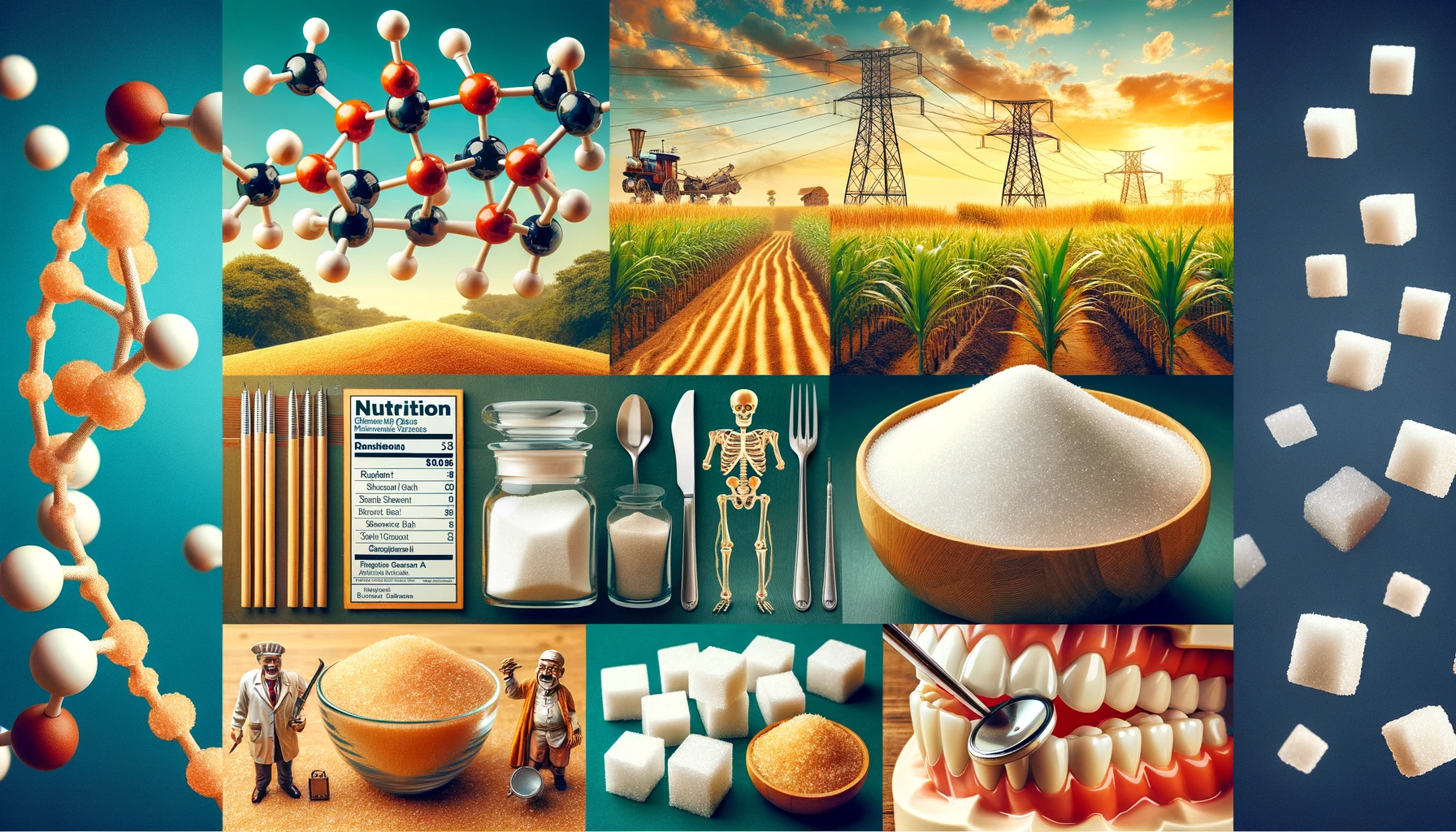Introduction
Sugar is a sweet delight that finds its way into our lives in various forms – as an essential ingredient in our morning coffee, a key component of countless dessert recipes, and even hidden in processed foods. But behind this sweet indulgence lies an industry with significant environmental repercussions. In this article, we will delve into the environmental impact of sugar production, focusing on the key ingredients that contribute to this issue.
The Basics of Sugar Production
Understanding the Sugar Production Process
Before we discuss the environmental impact, it’s important to grasp the basics of sugar production. Sugar is primarily extracted from two key sources: sugarcane and sugar beets. Both undergo similar processes but have varying environmental implications.
Sugarcane
Sugarcane Cultivation and Its Environmental Toll
- Land Use and Deforestation: Sugarcane cultivation often leads to deforestation and land-use changes, as vast areas are cleared to make way for this cash crop.
- Pesticides and Herbicides: The extensive use of pesticides and herbicides in sugarcane farming can result in soil and water contamination, affecting local ecosystems and wildlife.
- Water Consumption: Sugarcane requires a substantial amount of water for growth, contributing to water scarcity in many regions.
Sugar Beets
The Environmental Footprint of Sugar Beet Production
- Chemical Inputs: Sugar beet farming relies heavily on synthetic fertilizers, which can lead to nutrient runoff and water pollution.
- Energy Intensive Processing: Sugar beets require energy-intensive processing methods, contributing to greenhouse gas emissions.
- Monoculture Farming: Monoculture farming practices can deplete soil nutrients and harm biodiversity.
The Role of Sugar Mills and Refineries
Sugar Mills and Their Impact
- Energy Consumption: Sugar mills are energy-intensive, which increases their carbon footprint.
- Wastewater Discharge: Sugar mills discharge effluents that can pollute nearby water bodies if not properly managed.
- Bagasse Utilization: Some mills use bagasse, a byproduct of sugarcane, as a biofuel source, which can help reduce environmental impact.
Transportation and Distribution
The Carbon Footprint of Sugar Transport
- Long-distance Transportation: The global distribution of sugar products involves extensive transportation, contributing to emissions.
- Packaging Waste: The packaging of sugar products, such as plastic bags and cardboard boxes, generates substantial waste.
Sustainable Practices in Sugar Production
Promoting Environmental-Friendly Approaches
- Organic Farming: Organic sugarcane and sugar beet farming reduce the use of synthetic chemicals and promote healthier ecosystems.
- Energy Efficiency: Implementing energy-efficient technologies in sugar mills and refineries can lower emissions.
- Certification Programs: Certifications like Fair Trade and Bonsucro encourage sustainable practices in sugar production.
Conclusion
Balancing Sweetness and Sustainability
As consumers, we have the power to make informed choices that promote sustainability in sugar production. Understanding the environmental impact of sugar production and supporting sustainable practices can help mitigate the damage caused by this industry. By opting for organic and ethically sourced sugar products, we can sweeten our lives without harming the planet.
Remember, the key ingredients in sugar production are not just sugarcane and sugar beets; they also include the choices we make as consumers.
